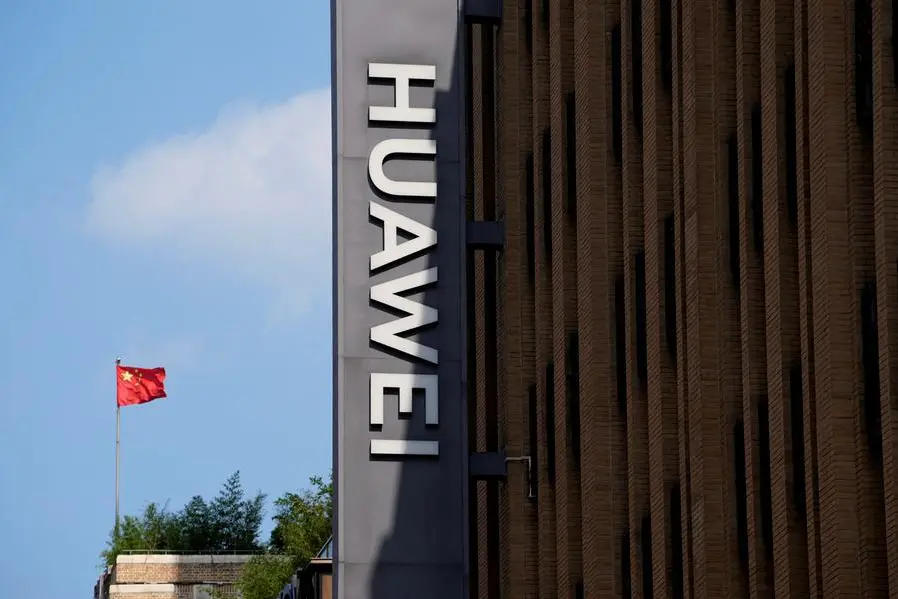PHOTO
WASHINGTON: The Biden administration added more than two dozen Chinese entities to a U.S. restricted trade list on Wednesday, including Zhipu AI, a developer of large language models, and Sophgo, a company whose TSMC-made chip was illegally incorporated into a Huawei artificial intelligence processor.
The Commerce Department also strengthened controls on the flow of chips to China to better prevent diversion to Huawei.
Zhipu AI, Sophgo and entities linked to them were among 25 China-based companies and two Singapore-based companies added to the U.S. Commerce Department's Entity List, according to government postings. Companies on the list cannot receive goods or technology exports without a license, which is generally denied.
Zhipu AI, whose investors have included Alibaba and Tencent, was added for advancing China's military modernization through advanced AI research.
Sophgo drew attention after a chip found on Huawei's Ascend 910B multi-chip AI system matched one it ordered from Taiwan Semiconductor Manufacturing Co.
Huawei was placed on the Entity List in 2019 and is now at the center of China's AI chip ambitions.
Sophgo is among numerous companies that have been punished for helping Huawei. Late last year, the Commerce Department added other companies viewed as part of Huawei's shadow network to the restricted trade list.
In a statement on its WeChat account late on Wednesday, Zhipu said the decision lacked a "factual basis" and its inclusion would not make a substantial impact on its business as it had mastered large language models' end-to-end core technology.
Sophgo, an affiliate of bitcoin mining equipment supplier Bitmain, and Huawei did not immediately respond to a request for comment on the latest additions to the Entity List.
In a statement on its website posted after the initial allegations in October, Sophgo said it "has never been engaged in any direct or indirect business relationship with Huawei."
The U.S. on Wednesday also tightened rules on exports of semiconductors that can be used for AI.
The new rules follow curbs the U.S. placed on TSMC after discovery of its chip in Huawei's Ascend 910B multi-chip system. As Reuters exclusively reported, the U.S. in November ordered TSMC to halt shipments of certain advanced chips.
ADDING NEW CONTROLS
The latest regulation adds new controls for chip factories and packaging companies seeking to export certain chips, building on earlier measures aimed at hampering China's access to chips that could help its military.
The new restrictions affect chips at 14 or 16 nanometer nodes or below that meet certain parameters and can be used in AI applications, and impact companies beyond TSMC.
A TSMC spokesperson declined comment. Samsung, which also may be affected by the changes, did not immediately respond to a request for comment.
Chipmakers can bypass licensing requirements if certain conditions are met, such as working with trusted chip packagers and approved designers subject to due diligence and reporting obligations.
"We are holding foundries accountable for verifying that their chips are not being diverted to restricted entities," Commerce official Alan Estevez said in a statement.
The rule also imposes tighter restrictions around a type of memory known as DRAM that is needed to make high bandwidth memory, which is used in AI processors.
The DRAM change will likely affect goods and technology destined for Chinese memory chip maker Changxin Memory Technologies, also known as CXMT, by imposing controls on more of its facilities, according to chip experts. CXMT did not immediately respond to a request for comment.
Companies are added to the Entity List for activities viewed as contrary to U.S. national security or foreign policy interests.
Besides Zhipu AI, nine other entities were added on Wednesday over military modernization through advanced AI research, most of them also Zhipu entities. One company was listed for helping develop lithography equipment for advanced chip factories in China.
Sixteen companies listed, including the Sophgo units, are related to the development of chips that further China's advanced weapons systems, weapons of mass destruction and high-tech surveillance applications, and were also targeted because they pose a risk of diversion to Huawei, according to the Commerce Department.
A spokesperson for the Chinese embassy in Washington did not immediately respond to a request for comment.
Wednesday's rules are among a slew of export restrictions issued the last weeks of the Biden administration. On Monday, the U.S. put out an ambitious plan to control the development of advanced AI worldwide. (Reporting by Karen Freifeld. Additional reporting by Fanny Potkin in Singapore. Editing by Chris Sanders, David Gregorio, Matthew Lewis and Christian Schmollinger)





















